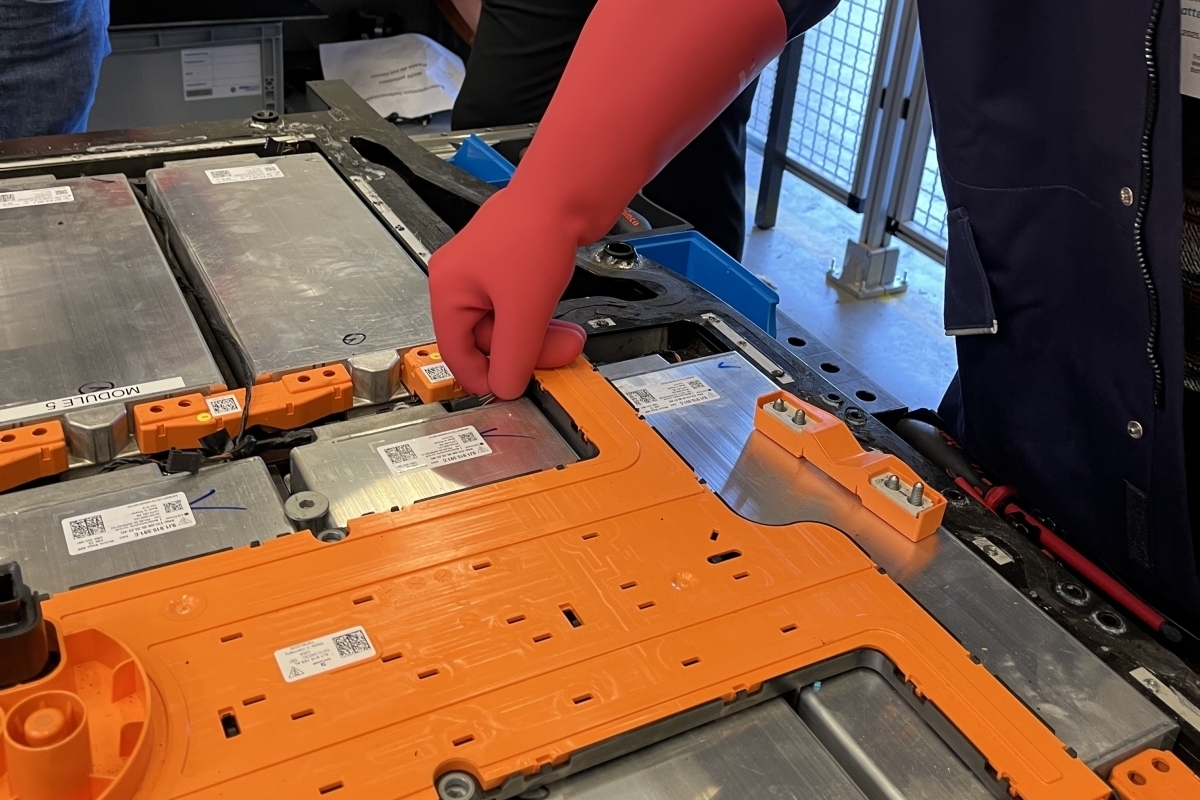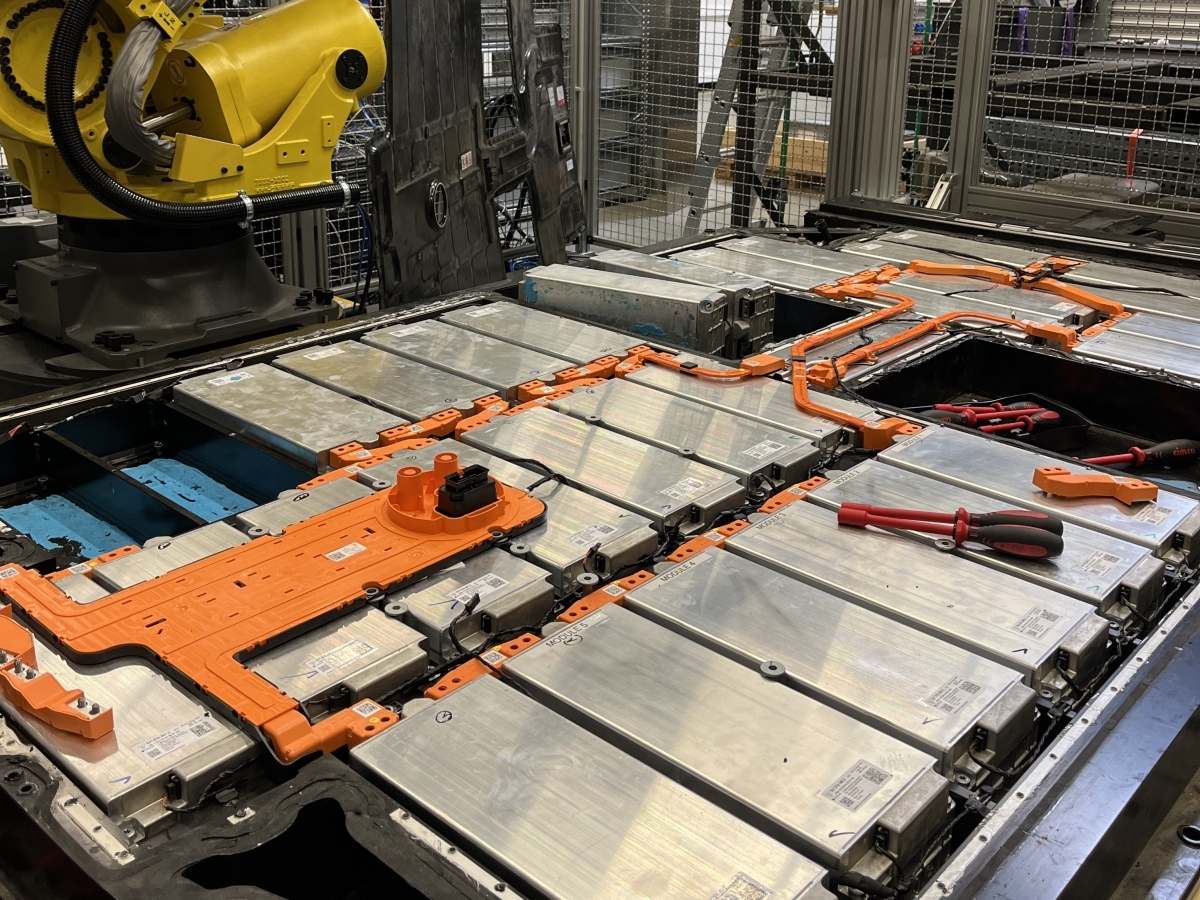Circular Valley Forum 2025: Batteries as the key to the circular economy
29.10.2025Batteries are a key component of the energy transition. A study commissioned by Circular Valley shows where Germany and Europe stand in international comparison and the opportunities that lie in recycling and mechanical engineering. At the forum, experts will discuss how batteries can contribute to the energy transition and a functioning circular economy.
 A car battery being dismantled
A car battery being dismantled
© Sumukha Todea/Circular Valley
There can be no energy transition without powerful batteries. They are essential for electromobility, stationary storage, and smart energy systems. Thus, they are a critical component of the circular economy. This is why the Circular Valley Forum 2025, which will take place on November 14 in the Historic Town Hall in Wuppertal, will also focus on batteries.
Under the motto “Action across Borders and Industries,” the forum will once again bring together more than 1200 leading figures from business, science, politics, and society. The focus will be on how cooperation across industry and national borders can accelerate the transformation to a circular economy.
In this regard, politicians are sending a strong signal: the successful cooperation between North Rhine-Westphalia and Flanders is being extended to the Netherlands at the major annual circular economy meeting. A key part of this collaboration involves cross-border project groups focusing on chemistry, construction, and batteries. Representatives from industry, research, and politics are collaborating to develop solutions for circular value creation. Now that the trilateral cooperation includes the Netherlands, this exchange will be further intensified.
 A car battery being dismantled
A car battery being dismantled
© Sumukha Todea/Circular Valley
Circular Valley Foundation commissioned study on battery production as part of TraWeBa project
As part of the TraWeBa project, the Circular Valley Foundation commissioned the study "Identifying the Potential and Players in Mechanical Engineering for Battery Production in Germany" in the run-up to the Circular Valley Forum. "The study shows that Germany has strong expertise in mechanical engineering, but scaling and industrialization need to be accelerated,” says Dr. Carsten Gerhardt, Chairman of the Circular Valley Foundation.
"Batteries have become a key technology in the energy transition, but there is still a wide gap between aspiration and reality." To prevent the energy transition from slowing down, affordable storage capacities are now needed. Imported batteries, many of which are government-subsidized in Asia, are "processed, packaged raw materials" that can immediately benefit the system, whether in vehicles or in the grid.
The Circular Valley Forum will also feature a panel discussion on the topic of batteries
Recycling large quantities of batteries also creates new opportunities for the European market. "The EU Battery Regulation provides a robust path to closing loops in Europe," says Dr. Carsten Gerhardt. The regulation introduces minimum recycling efficiency quotas in stages and will soon introduce mandatory recycled content for cobalt, nickel, lithium, and lead. These changes create demand for high-quality recycling and an attractive industrial landscape for German technology providers, particularly those in the mechanical and plant engineering sectors.
The Circular Valley Forum will feature a panel discussion on batteries. Titled "The Power Within: Getting Sufficient Renewable Energy for a Circular Economy," the discussion will focus on how batteries and chemical storage systems can increase the reliability of solar and wind power and explore the opportunities that agri-photovoltaics offer for combining energy generation and agriculture.
